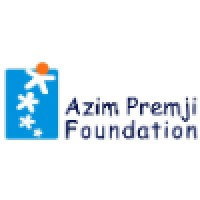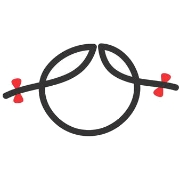
Website International Rice Research Institute (IRRI)
About IRRI
The International Rice Research Institute (IRRI) is dedicated to reducing poverty and hunger through rice science; improving the health and welfare of rice farmers and consumers; and protecting the rice-growing environment for future generations. IRRI is an independent, nonprofit, research and educational institute, founded in 1960 by the Ford and Rockefeller foundations with support from the Philippine government. The institute, headquartered in Los Baños, Philippines, has offices in 17 rice-growing countries in Asia and Africa, and over 1,000 staff.
Working with in-country partners, IRRI develops advanced rice varieties that yield more grain and better withstand pests and disease as well as flooding, drought, and other harmful effects of climate change.
Job Purpose
Rice fields are a large emitter of methane and adoption of new technologies and policies is necessary to meet national emission reduction targets in Asia. Technologies and policies that reduce the carbon footprint of rice and are linked to market incentives to benefit rural small-holder farmers and sustain the reduction of emissions over the long-term are crucial. Development of new management practices demands further research on their GHG-reduction potential and validation in order for them to be linked to the carbon market and how best to take advantage of it while contributing to the national development and emission goals. Working with various national and international partners in different projects, IRRI develops strategies to increase the level of adoption of climate-smart technologies in rice production. This task needs a concerted approach of an inter-disciplinary team of experts.
IRRI, with the support of the Government of India, Ministry of Agriculture and Farmers’ Welfare, has established IRRI-South Asia Regional Centre (ISARC) in Varanasi, Uttar Pradesh. The ISARC is a regional facility of IRRI established in Varanasi, Uttar Pradesh, to support research, collaboration, training, and service provision to institutions, scientists, and other stakeholders in India and other South Asian and African countries. ISARC stands for excellence in rice research through its three major component units, the Centre of Excellence in Rice Values Addition (CERVA), Centre of Excellence in Sustainable Agriculture (CESA) and IRRI Research and Education Program (IREP). ISARC is undertaking several R4D programs/projects for development cutting edge technologies and rice value added products to enhance the income and welfare of rice farmers through value chain development.
Under the general directions of the scientists, the incumbent will provide scientific contribution to the projects related to climate change, including training, project reports, partnerships, and outputs. S/he will significantly contribute to the organization’s climate change and GHG emission research of rice-based systems in India. S/he will coordinate the implementation of on-farm and on-station experiments at project sites to collect baseline data, measure emissions, and elaborate interactions from adjusting multiple management practices, which contributes to the climate change agenda of IRRI. This research includes measurement of GHG emission of existing methodologies, develop and validate new GHG-reducing management practices by generating evidence for a new methodology for voluntary carbon markets. The incumbent is expected to have knowledge of GHG measurement in agriculture as well as organizational skills. The incumbent will also provide capacity building and communication advocacy to stakeholders and field staff as well as contribute to policy briefs, research reports and scientific articles. S/he will work closely with collaborating partner(s) for monitoring and implementation of planned activities.
Roles and Responsibilities
- Develop, manage and oversee activities related to on-field /on-stations GHG measurement of rice plots.
- Develop and evaluate emission reduction methodologies for the rice sector.
- Develop training materials and provide training on GHG-reducing management practices to master trainers and other participants.
- Liaise with project partners in implementation of project activities related to GHG measurement, conducting training and capacity building activities.
- Recommend strategies to improve the efficiency of project activities.
- Recommend immediate intervention to research design and implementation when necessary.
- Contribute to research communication in a broad array of outlets, including peer-reviewed journals, mass media, policy for a as well as national and international scientific conferences.
- Ensure the timely completion of deliverables on all related projects.
- Develop and sustain partnerships and nurture effective relationships with various international and NARES partners.
- Coordinate with field teams for implementation of on-farm/station trials and activities, sample and data collection, etc.
- Monitor and review of field level engagements and their implementations and feedback generation.
- Engage with vendors and project and implementation partners for installation, handling and maintenance of gas chambers in project sites and sample collections and analysis.
- Coordinate with internal project and IRRI/ISARC teams to achieve agreed milestones and ensure compliances.
- Strengthen and sustain the relations with vendors of the materials required for GHG measurement and other research activities.
- Consult and collaborate with key stakeholders of projects in the integration of the execution of the project activities.
- Contribute and work as a resource person for training/ exposure visits being organized at project sites.
- Any other tasks as assigned by Supervisors.
- Ensure high quality data collection on regular basis from the project sites to measure GHG emission and other information of the project activities.
- Ensure high quality training to partner nominated trainers as well as internal field staff on GHG-reducing management practices, collecting samples and implementation of other field activities.
- Support project progress reporting, scientific outputs, and communication materials.
- Document key lessons learned and develop success case studies to capture outputs of the project; and
- Advice and capacitate field staff
Qualifications
- Ph.D. in Agronomy with a minimum of 3-5 years of relevant work experience in climate change research in any agricultural research organization of national/international repute OR Master’s in Agronomy with a minimum of 7-8 years of related work experience
- Good understanding of agriculture project management
Skills Required
Mandatory:
- Accountable for the delivery of project outcomes
- GHG measurement process and methods
- On-farm/on-station research activities on GHG measurement and other climate change related aspects
- New agronomic management practices in rice-based systems
- Excellent written and verbal communication skills
Preferred:
- Analytical skills
- Familiar with the different cultural aspects of India
Allowances: In addition to the base salary indicated above, IRRI also offers the following allowances:
- House-Rent Allowance: IRRI provides a house rent allowance of 40% of base pay per month
- Transport Allowance: A monthly transport allowance of INR 5000
- Dearness Allowance: One Hundred and Thirteen percent (113%) of employee’s base pay
- Leave Travel Allowance (LTA): One-month base pay per annum, on availing minimum 2 days of vacation leave
- Education Allowance: INR 1000/- per child per month (limited 2 children)
IRRI offers a highly extensive employee benefits package inclusive of globally covered medical insurance, retirement plan, life and accident insurance and other allowances. Join our team and be part of our story!
Please note only shortlisted candidates will be contacted.
To apply for this job please visit www.irri.org.





